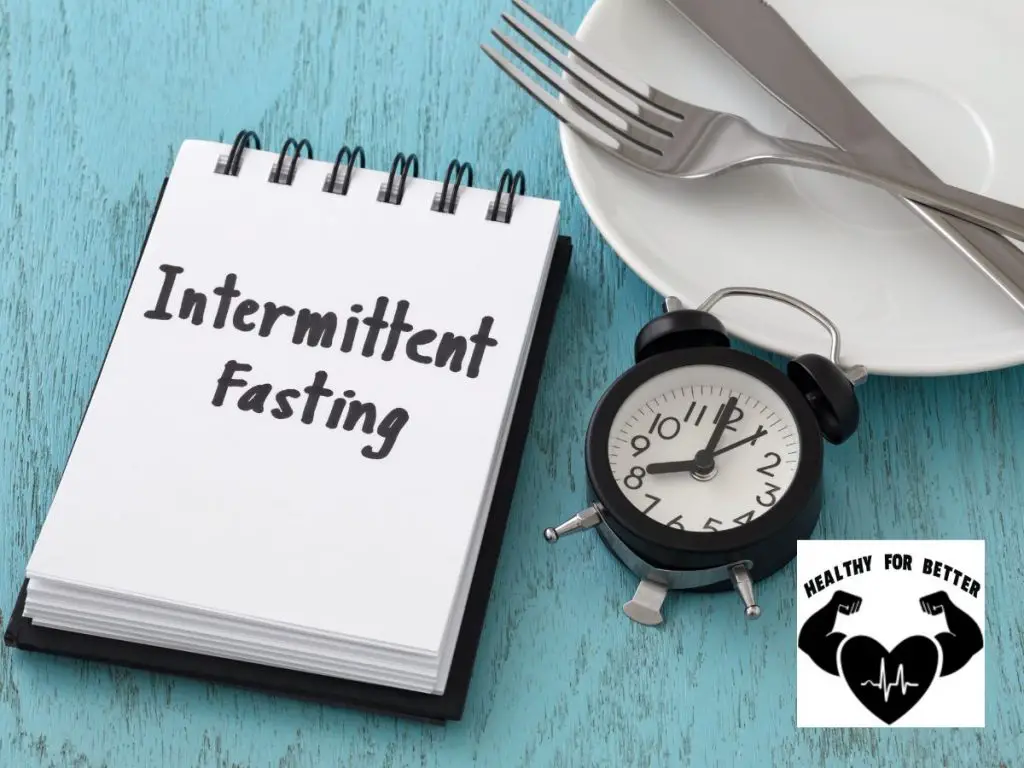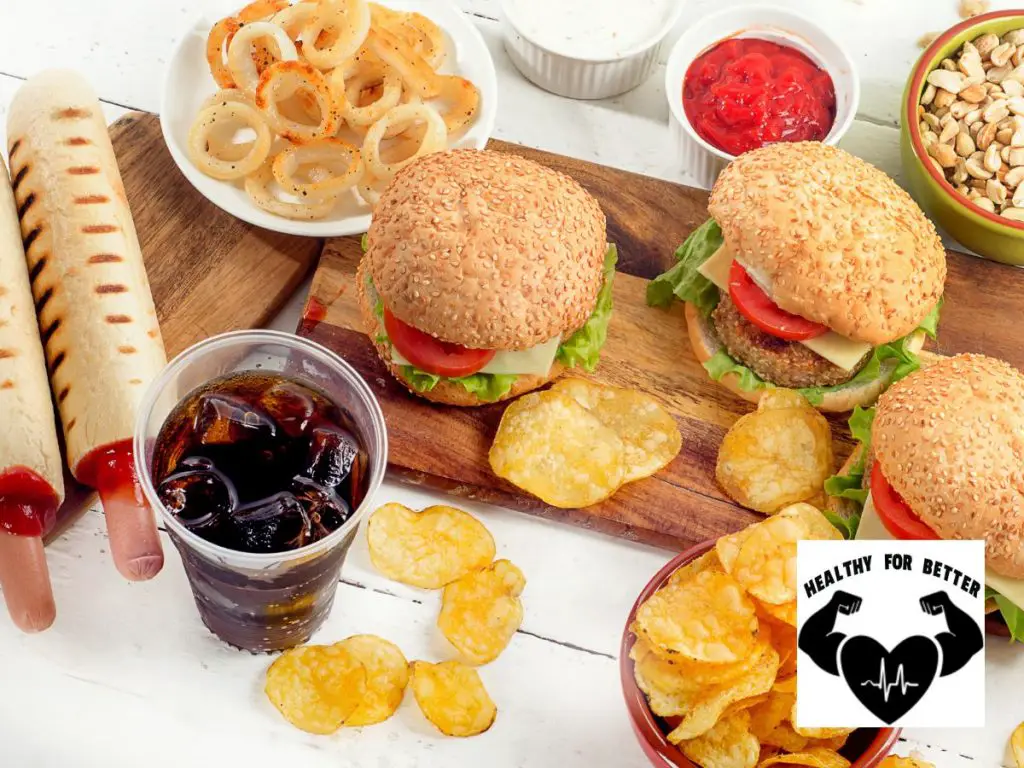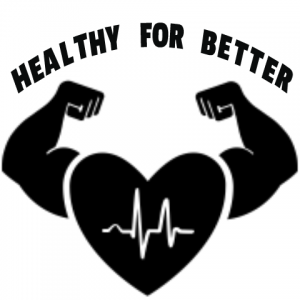Fasting is a great way to cleanse your body and reset your system. It can also be a great way to jumpstart your weight loss journey. However, fasting can be tough, especially if you've never done it before. In this article, we are going to share our experience and the research to teach you how to do a 3-day fast successfully.
How to Prepare for Your Fast
The first step to successfully completing a fast is preparation. You need to make sure that you are mentally and physically prepared for the challenge ahead. Fasting is not easy, but it is doable. Here are a few tips to help you prepare for your fast:
1. Consult with your doctor: If you have any medical conditions, it is important to consult with your doctor before beginning a fast. Fasting can be dangerous for some people, so it is always better to err on the side of caution.
2. Choose the right time: It is important to pick a time when you know you will not be too busy or stressed. This is not the time to start a new project at work or take on a new hobby. Choose a time when you can relax and focus on taking care of yourself.
3. ease into it: If you have never done a fast before, it is important to ease into it. Start with shorter fasts and work your way up to longer ones. A 3-day fast should not be your first fast!
4.Stock up on supplies: When you are preparing for your fast, make sure to stock up on supplies like water, healthy snacks, and high-protein foods for after. You will need these things to help you through your fast and the aftermath.

My History With Fasting
Although my wife hasn't experimented with fasting like I have except for doing blood work and a pair of surgeries and when having her two babies. I have experimented in many ways doing everything from 7 day fasts to simple intermittent fasting.
Intermittent fasting is when you only consume foods during certain hours of the day and fast for the rest. This is a great way to start out fasting if you are new to it. I would recommend doing a 16-hour fast, which means you would only eat between the hours of 8 am and 8 pm. This leaves plenty of time for your body to rest and heal.
I have also done several 24-hour fasts, which is where you consume all of your food within a 24-hour period and then fast for the rest of the day. This can be tough, but it is doable with the right mindset.
The longest fast I have ever done was a 7-day water fast. This was definitely the hardest fast I have ever done, but it was also the most rewarding. After the first few days, my body went into full ketosis and I had so much energy! I felt amazing.
After doing these types of fasting, a 3-day fast will seem like a piece of cake.
Growing up you are basically taught you have 6 meals a day eat every 2 hours have to keep that metabolism going then when you finally figure out that you don't need to do that at all it seems like such a waste of time. Now I eat 2 meals a day max but most of the time I like OMAD one meal a day along with mostly carnivore/keto meals.
Then I continue to try to fast at least one day a week usually coming off the weekends especially if I loaded up on carbs or alcoholic beverages.
3 day fasts I try to do one every season change which has helped renew my energy and cleanse my body for sure. My father also follows a fasting regime where he doesn't eat breakfast and will fast for 3 days once a month it has worked great for not only his weight but his joints as well.
What is the definition of fasting?
Fasting is the willing abstinence or reduction from some or all food, drink, or both, for a period of time. Abstinence may be total or partial, and may be from certain foods only.
Partial abstinence may be for a specified period of time, as with Ramadan fasting. Variety in fasting practices exists from culture to culture. Fasting is often practiced as a spiritual discipline, especially in the world's religions.
Starvation is involuntary and occurs during war, famine, or other such dire circumstances. In contrast, fasting is done on purpose to reap benefits like improved physical health, mental well-being, etc.
Fasting has many benefits, including cancer prevention, weight loss, type 2 diabetes prevention, increased focus, and toxin reduction.
What Is A 3 Day Water Fast?
A 3 day water fast is a great way to jumpstart your metabolism and cleanse your body of toxins. It's also a great way to lose weight quickly.
During a water fast, you consume nothing but purified water. This means you're getting all the nutrients and hydration your body needs while allowing your digestive system to rest.
A water fast is not for everyone, so please consult your doctor before trying it. Pregnant or nursing women should not do a water fast. If you have any health conditions or are taking medication, please check with your doctor before fasting.
What Are The Many Healthy Benefits Of Fasting?
Fasting has many health benefits, including aiding in weight loss, improving circulation and digestion, and boosting the immune system. Fasting can also help to detoxify the body by giving the organs a break from processing food. When done correctly, fasting can be a safe and effective way to improve your overall health.
Some neurological benefits include improved memory and concentration, increased focus and mental clarity.
Fasting also has anti-aging benefits, as it can help to protect cells and DNA from damage. Fasting has also been shown to improve heart health by reducing inflammation and lowering blood pressure.
For weight loss you will increase your fat burning, better control of your hunger and also insulin sensitivity.
Furthermore, according to Dr. Thomas Seyfried, a professor at Boston College in his book Cancer as a Metabolic Disease: On the Origin, Management, and Prevention of Cancer, periodic 7-day fasts might be effective in eradicating abnormal and pre-cancerous cells.

How to Break Your Fast Properly
Just as important as preparing for your fast is breaking your fast properly. You need to make sure that you do not overeat or eat unhealthy foods after fasting for three days. Here are a few tips for breaking your fast:
1. Drink plenty of fluids: After fasting for three days, you will likely be dehydrated. Make sure to drink plenty of fluids, like water and juice, to rehydrate your body slowly but surely throughout the day.
2 eat small meals: When you first start eating again, it is important to eat small meals every few hours instead of large ones all at once. This will help prevent indigestion and other problems associated with overeating after fasting .
3 eat healthy foods: After fasting, your body will be craving nutrients. Make sure to fill up on healthy foods like fruits, vegetables, and lean protein sources like chicken or fish .
4 Avoid sugary foods : After fasting ,you might be tempted to indulge in sugary foods ,but it's important to avoid them as much as possible . Not only are sugary foods high in calories ,but they can also lead to cravings for more sugary foods later on . Stick with healthy foods that will nourish your body after a long fast.
Following these tips will help ensure that you have a successful fast and long-term success .But remember that everybody is different ,so try different methods and find what works best for you !And always consult your doctors before beginning any type of diet or fast
Time To Get Ready For the 3 Day Water Fast
There are two options and I have done both one is to just jump into it with no expectations drink a lot of water the 3 days and tough it out. The other is to do some reading on some books. Want to start immediately get onto kindle and download a book our favorites are:
The Complete Guide To Fasting by Jason Fung
Fasting correctly is not about going hungry. It's a therapeutic approach that provides amazing results, no matter what diet you're on.
Dr. Fung has used a variety of fasting regimens on over 1,000 patients with great success, according to Toronto-based nephrologist Dr. Jason Fung. In The Complete Guide to Fasting, he and international best-selling author and long-time health podcaster Jimmy Moore collaborate to explain what fasting is all about, why it's so crucial, and how to fast in a way that benefits one's health.
Together, they make fasting as a therapeutic approach both practical and easy to understand. The Complete Guide to Fasting explains:
• why fasting is actually good for health
• who can benefit from fasting (and who won’t)
• the history of fasting
• the various ways to fast: intermittent, alternate-day, and extended fasting
• what to expect when starting to fast
• how to track progress while fasting
• the weight loss effects of fasting
• how to ward off potential negative effects from fasting
The 3-Day Energy Fast by Pamela Serure
In just three days, you can change your life with Pamela Serure's The 3-Day Energy Fast. This is the first time that her legendary ultimate life detox program is available to the public — an integrated body, mind and spirit health plan that will help you feel physically renewed and spiritually replenished.
We are living in an era where environmental, chemical, physical and emotional toxins are becoming more prevalent by the day. These range from polluted air to unhealthy relationships. negative thoughts and emotions can also be toxic. But it is possible to improve your health by ridding your body of these toxins. And you don't have to wait — you can start detoxifying today!
You can purify your mind, body, and spirit by doing the 3-Day Energy Fast. Say goodbye to all of the chemicals and toxins stored in your body, as well as bad ideas that are entrenched in your mind and harmful behavior patterns ingrained in your psyche. The program from Serure allows you to leave the past behind and begin fresh.
“The Fast” portion of her three-part approach explains how to make quick and easy fruit and vegetable juices, as well as simple vegetable mineral broths for the evenings. “Meditating and Breathing” provides exercises specifically designed to cleanse emotional, spiritual, and physical toxins from your body while finding energy, remaining calm, balancing your body & spirit. “Healing and Fasting” will help you understand how to fast correctly to receive the optimum benefits; while “Creating Ritual and Discipline in Your Life” provides instruction on setting up your own personal space where you can address your fears, surrender your dreams, meditate daily, and write in a journal.
This simple yet effective plan will help you transform your health, including physical changes like weight loss and clearer skin, as well as mental benefits like increased energy and creativity. The 3-Day Energy Fast is just the beginning of a lifelong journey to optimum wellness.
The Fast Metabolism by Haylie Pomroy
Haylie Pomroy is known as “the metabolism whisperer” because she believes that food shouldn't be villainized, but rather seen as fuel to help boost a sluggish or broken-down metabolism. Consequently, your body becomes better at burning fat.
On this plan, you'll eat considerably—three full meals and at least two snacks per day—and you'll still lose weight. You won't count calories or fat grams, go carb-free, or prohibit specific food groups. Instead, you're going to shift your diet every week based on a straightforward and proven technique that is carefully engineered to create precise physiological reactions that will set your metabolism on fire.
Within four weeks, you'll not only lose weight, but your cholesterol will drop, blood sugar levels will stabilize, energy will increase and you'll sleep and feel better overall.
This comprehensive guide provides you with four weeks of meal plans and over fifty recipes to help you finally achieve your weight loss goals. With vegetarian, organic, and gluten-free options available, there is a plan for everyone who wants to improve their health by eating natural, nutritious foods.
To ensure that you have a successful and enjoyable 3-day water fast, it is important to prepare both mentally and physically. First, commit to the fast and decide on a start. Eat a light, healthy diet in the days leading up to the fast. This will help to ease your body into the fast and make the transition smoother. I know this seems counter intuitive since most people think you need to have a big meal before you go into a fast.
All that does is make things worse maybe not the first day, but the second day for sure you will start to have much worse cravings. Drink lots of water, get plenty of rest, and reduce stress as much as possible.
On the day of the fast, drink plenty of water and eat a small, easily digestible breakfast. Then begin your day as usual, without thinking about food or drink. Stay hydrated by drinking water regularly throughout the day. You may also want to drink herbal tea or freshly squeezed juice. Some people still choose to have black coffee as well since caffeine will help supress your appetite.
On the second day make sure you try to drink around 16 ounces of water upon wakening. This will make your belly feel much fuller than not drinking it again if you want add a lemon and a cup of coffee that can be okay. Throughout the day you may have craving worst than the first 24 hours. Remember to stay busy and keep your mind off food.
On the last day, you will probably have strong cravings and feel weak or lightheaded. This is normal! Drink plenty of fluids and eat a small meal as soon as you break your fast. Start with something soup based like miso or vegetable broth then move on to some more solid.

Fasting To-Do List: Before
How Long?
Just how long do you want to fast for? You can start with a shorter period like 12-16 hours to get used to the idea of fasting. Once you're ready, you can increase the duration of your fasts to 24 hours, 36 hours, and even longer if you feel comfortable doing so.
From person to person, a lot varies. It might take anywhere from 12 to 36 hours for your metabolic switch to “ flip ,” as we discuss in our essay on the health advantages of intermittent fasting.
There is no set duration for fasting– it can last as long as you want it to. The longest fast on record was by Angus Barbieri in 1965, who only consumed calorie-free beverages such as tea and coffee.
Obese at 456 pounds, he supervised by a doctor while fasting until he achieved his goal weight of 180 pounds. 382 days passed before he hit his target, and thankfully, did so in excellent health.
Today, the most extended fasts last 7-14 days. Fasting of this sort are frequently done to combat obesity, fatty liver disease, insulin resistance, type 2 diabetes, or other metabolic diseases.
Its safer and easier to start with the shorter fasts of 1-3 days where you will lose moderate weight (mostly water weight) and it will jump start your metabolism and diet and as well.
If you go longer than a few days make sure you have some supervision preferably from a doctor. The more people you tell the better though so they can check in on you.
To Drink Or Not To Drink That Is The Question
Coffee and Tea? Some people love it and some can't stand it. We are avid coffee drinkers even though we are mostly carnivore/keto we still have this one caveat. We usually have heavy cream in ours for low carb purposed but when fasting we usually have it black.
So yes it is okay since it is calorie free however I wouldn't add anything to it since even zero calorie sweeteners can raise your blood sugar and insulin. It tricks your brain into thinking sugar is coming so literally will shut down your fat burning capability temporarily which will hinder your results.
Yes To Coffee And Tea If You Wish!
Longer Fasts Supplementation
If you are going longer than 3 days water might not be enough to keep your electrolyte levels up this will of course depend on your day to day activities as well. Consider supplementing with some added salt (we recommend Redmonds real salt with minerals). Also some bone broth or zero calorie electrolyte drinks.
Just be careful and overload on the water you really can't get too much of this. But if your energy levels start to really bottom out it may be because of dehydration and water may not be enough so slam a zero calorie electrolyte beverage and it will help it also helps with headaches.
3 Day Fasts Are Actually Longer
Most people when that 3 days is up they feast and this can set you back both with your body functioning correctly and with your results you just achieved after those 3 long days.
Good place to start is being very careful 1/2 the time you fasted so for a 3 day fast be careful the first 1 1/2 days after this fast. Smaller meals with leaner meat can make you feel more comfortable.
For us we just go light on that first meal after the fast with a snack like a chicken salad or a fish with some cheese maybe. Then the next we usually have some steak and eggs but our diet (carnivore/keto) calls for high fat so our body is still used to this even after 3 days of fasting. Mainly stay away from the JUNK FOOD! We know the cravings to eat a lot are there don't mess up your results.
Eat Light Before The Fast
If you want to see results from fasting, it's important that you limit your carbohydrate intake. Foods like pasta are high in carbohydrates and will take longer for your insulin levels to drop – thus postponing any potential results.
Have either a lean balance meal like a chicken salad or if you are doing keto eat your normal steak and eggs with some lower glycemic vegetables.
Let Them All Know
If there are others in the home, inform them that you're fasting. You should not be irritated while fasting, but they should be aware and prepare their food privately while you are. Just keep yourself busy let them know you are doing this for yourself and others.
Our last fast took place at home and we have a 5 year and my brother in law lives with us so it was not easy I had to leave the room at times because when those two are together they are usually eating some kind of junk food or candy.
What Day Should I Start?
This can vary and you may need to switch it up and see what works best for you. For us it works best coming off the weekend since we are most busiest around the house and with work Monday through Friday. For others it may be the weekend that is the easiest so you may want to start on a Thursday or Friday and finish on the weekend when it is toughest.
We like to start our week off with fasting seems to let us hit the ground running into having a successful week.

How To Analyze Your Fast
Getting blood work can be a great way to check in and see what is going on in your body before and after you fast. Some things you want to compare are you blood sugar, ketones, cholesterol, along with other normal blood testings.
Other things to record is your weight before and after. Also take some measurements specifically around your trouble areas. The best way to do this is to measure your waist and hips. This is what is called a waist to hip ratio. For us this is much better than tracking weight since there have been so many studies on the waste to hip ratio.
How to Measure Your Waist to Hip Ratio
You can ask your doctor to measure your waist-to-hip ratio, or you can figure it out yourself with this simple method.
Measure at the smallest point. Wrap a tape measure around your waist at the smallest point, which is usually about your belly button. This is your waist circumference. Make a note of it.
Measure your hips. Follow these steps to measure your waist. Wrap the tape measure around your hips at the widest point. Hip circumference is the length of your hips. Make a note of it.
Divide. Use a calculator to divide your waist size by your hip size. This is your waist-to-hip ratio.
Record your ratio. WHO defines abdominal obesity in men as a waist-to-hip ratio of at least 0.90. For women, it’s a ratio of 0.85 or more. A ratio higher than 1.0 for either sex means a much higher chance of health problems.
Other things we use to track:
- Apple watch – heart rate and sleep patterns
- Body Fat Caliper
- A Good Scale
- Body Measuring Tape (much easier)

My 3 Day Fast Diary
DAY ONE
My starting weight: 237 lbs
The Start: Sunday evening had my usual Ribeye (16 ounce), 4 slices of pork belly (similar to bacon) and 4 eggs. I only use redmonds real salt for seasoning everything. I usually try to have my dinner around 6pm Sunday before I fast I actually ate this at around 5pm.
First night sleep was well at 6 hours and 15 minutes (that is all I need for the most part)
Monday Morning – feeling good did my usual routine with my SAVERS (Read miracle morning) but it usually consists of using a couple apps to meditate, visualize, working out, reading, and a little bit of writing. Usually takes around 20 minutes excluding the exercise.
For workout I got in a Body Beast Beachbody weight workout. Not the biggest fan of cardio especially while fasting if anything I would stick to walking will keep you from depleting your glycogen levels to fast and getting major cravings.
Then I wrote an article for one of my websites and did a little trading the US30.
Exercising is not a must when fasting that's just like if you are eating well enough you shouldn't have to workout that much.
Cravings – Throughout the day I had some cravings of course especially after noon hits. I usually have an afternoon cup of coffee or two to suppress them. I also like brushing my teeth if I get some really bad cravings or slamming 8-16 ounces of water helps. I did play with my daughter outside playing some kickball, teeball and what she calls cheetah ball (she made it up) so my cravings were probably worse than normal.
DAY TWO
My weight: 231 (down 6 lbs)
Sleep wasn't as good but I had some late night projects I had to get done and playing with my daughter earlier kind of put me behind. So I got around 5 1/2 hours which again I am okay with anything over 5 and I can operate pretty optimal.
Morning – still did the same thing with my Savers I did feel a bit more hungry than normal so got the coffee going earlier I usually wait until I am awake a couple hours after waking to have coffee. Did another Body Beast Weight Workout along with going for a short walk around our property.
Slammed 16 ounces of room temperature water after I walked to the kitchen. I like room temperature most because it goes down much easier. Don't get me wrong I love ice cold water as well.
DAY THREE
My weight: 226 (down another 5 lbs 11 overall) this is quite normal for me on a 3 day fast I usually try to walk around at 225 lbs (my wedding weight from 2012). I feel most comfortable at that but I don't weigh myself usually but once a month. I care mostly about how I feel.
Sleep wasn't good I actually only slept 4 hours 45 minutes which I can't do so I did not feel very good in the morning. I got up and read which usually works actually reading Green Lights by Mathew McConaughey. Great book I highly recommend and the audible is even better with him narrating.
Skipped my workout figured rest is better than working out and getting those craving again.
Morning – other than skipping my workout I stuck to my routine.
Afternoon – I had my first snack at 5:30pm of two eggs and a slice of center cut bacon. Then at 7:30 I had a steak. Fast was complete I slept very well getting almost 7 hours on the 3rd night.
Final Thoughts – Day 3 wasn't bad considering the lack of sleep and knowing I would be finishing the day with a steak made it much easier.
Breaking Your Fast
Fasting has become a popular way to detoxify the body and reset the digestive system. While there are many different ways to fast, water fasting is one of the most common—and one of the most effective. Water fasting involves abstaining from all food and beverages except for water. This can be done for a period of time ranging from 12 hours to 3 days.
If you're thinking about embarking on a water fast, it's important to know how to break the fast properly. In this blog post, we'll give you some tips on how to do just that.
How to Break Your Fast Safely and Effectively
1. Start with clear liquids. Once you've completed your fast, it's important to ease your way back into solid foods. Start by drinking clear liquids like water, broth, or herbal tea. Avoid sugary drinks like juices or sodas, as they can cause an insulin spike that can be hard on your body after a fast.
2. Move on to light meals. After consuming clear liquids for a few hours, you can start eating light meals like soups or raw fruits and vegetables. Avoid fried foods or anything else that is heavy on your stomach.
3. Listen to your body. It's important to listen to your body during and after a fast. If you're feeling tired or dizzy, take a break and rest for a bit before resuming your normal activities. And if you're experiencing any adverse effects like nausea or headaches, be sure to seek medical attention right away.
Breaking a water fast can be daunting, but following these simple tips will help ensure that you do it safely and effectively. And remember—if you're ever feeling lightheaded or dizzy, make sure to take a break and listen to your body!
Final Thoughts
Water fasting is a great way to detoxify your body and reset your digestive system. But if you're not sure how to break the fast properly, don't worry—we've got you covered. In this blog post, we'll give you some tips on how to ease back into solid foods safely and effectively. So whether you're just starting your water fast or you're nearing the end, be sure to read on for some helpful advice.
Below we put together the most emailed questions we get so you can get your answers there. If you look and don't see your question there email it too admin@healthyforbetter.com.
Make sure you check out our other articles on other types of eating and fasting so you can reach your goals.
Frequently Asked Questions About Fasting
Is there anybody who shouldn't do a water fast?
While there is no one-size-fits-all answer to this question, water fasting is generally not recommended for people who are pregnant or nursing, children, senior citizens, or people who are underweight.
Water fasting may also not be recommended for people with certain health conditions, such as diabetes or high blood pressure. It's always best to consult with a healthcare professional before starting any new kind of diet or fasting regimen.
Will I lose muscle if I fast?
No, you will not lose muscle if you do a water fast. In fact, water fasting can help to preserve muscle mass. When you fast, your body enters into a state of ketosis, which is when it starts burning fat for energy. This process helps to spare muscle tissue and prevent the breakdown of lean body mass. So, if anything, doing a water fast could actually help you to maintain your muscle mass.
Fasting and timed eating were two of the early strategies used by weight lifters to reduce body fat and maximize muscle development.
Human growth hormone levels may increase by more than 150% during fasting, which maintains muscle and strength. Our bodies are smart enough to realize that fat is burned before muscle.
What happens to bowl movements during fasting?
Some people can experience changes in their bowel movements when fasting. Many people report that their bowel movements are more regular and consistent during fasting, while others report that their bowel movements are less frequent.
Some people also report that their stool is harder and more difficult to pass when fasting. Ultimately, however, everyone's experience with fasting and bowel movements will be different. If you're experiencing any abnormal or uncomfortable changes in your bowel movements, it's best to consult with a healthcare professional.
Should I do a water fast or a low calorie diet?
It depends on your goals. If you're looking to lose weight, I would recommend doing a low calorie diet. But if you're looking to detox and cleanse your body, I would recommend doing a water fast.
In the end the best option is probably to do both start out with a fast then do a low calorie diet following. You can do intermittent fasting or even look at doing a weekly one day fast to start your week out right.
Will my metabolism slow down from fasting?
Depends on the length of the fast up to 4 days studies have shown that fasting will actually increase your metabolism.
Fasting also allows your pancreas (where insulin is produced) and body to relax, reset, heal, and purify.
According to certain studies, autophagy (cell regeneration) may begin as soon as 18 hours into a fast, but the greatest benefits are realized between 72 and 120 hours. Your metabolism will remain stable during this time.
What About Extended Fasting?
Over 4-7 days of fasting can have a negative affect on your metabolism by slowing it down. This can be temporary as well if you eat right following your fast.
There's a lot of anecdotal evidence out there that fasting can slow down your metabolism. But scientifically speaking, there's not much proof to support this claim. In fact, quite the opposite may be true.
Studies have shown that when you fast, your body actually produces more brown adipose tissue (BAT), which is the “good” type of fat that helps your body burn more energy and stay warm. So while you may lose weight in the short-term from fasting, it's likely because you're burning more calories than you're eating. And over time, if you continue to fast regularly, your metabolism may actually speed up as a result.
That said, everyone is different and some people may find that their metabolism does slow down after fasting for extended periods of time. If this is the case, it's usually temporary and will correct itself once you start eating again. If you're concerned about your metabolism, it's always best to speak with a healthcare professional before starting any type of fasting regimen.
What's the difference between intermittent fasting and a 3 day fast?
Intermittent fasting is an approach to eating that involves cycling between periods of eating and fasting. Whereas a 3 day fast would entail consuming no food at all for 3 consecutive days, intermittent fasting allows for small amounts of calories to be consumed during the fasting period.
There are a number of different ways to do intermittent fasting, but one popular approach is to restrict your intake to 500-600 calories on 2 non-consecutive days per week. This type of intermittent fasting has been shown to have a number of health benefits, including weight loss, improved blood sugar control, and reduced inflammation.
Is fasting for 3 days healthy?
When it comes to fasting, there is a lot of debate surrounding its safety and efficacy. However, many health experts agree that fasting can be a healthy way to cleanse the body and reset the digestive system.
That being said, it's important to consult with your doctor before embarking on any type of fast, especially if you have certain health conditions or take medication. Also, while three days may not seem like a long time to go without food, it can actually be quite challenging for your body (and mind!) To go without solid nutrition for that length of time.
That's why I always recommend working with a professional during a fast, such as a certified nutritionist or personal trainer. They can help you ensure that you're doing it safely and effectively, and they can also provide support and guidance if you start to feel weak or dizzy.
In general, though, I believe that fasting for 3 days is safe for most people when done under the supervision of a healthcare professional.
Will a 3 day fast put me in ketosis?
Yes, a 3 day fast should put you into ketosis. When you're in ketosis, your body is burning stored fat for energy instead of glucose. This can help you lose weight and improve your health.
If you're new to fasting, I recommend starting with a shorter fast and gradually increasing the length of time you fast each week. This will help your body adapt to fasting and minimize any side effects you might experience.
Does Fasting Burn Belly Fat?
Yes, fasting can help burn belly fat. When you're fasting, your body is using up all of its stored glucose (from the food you've recently eaten) and then it starts burning through your body's stored fat. That's why people often lose weight pretty quickly when they start fasting – because their bodies are starting to use up all of that excess fat that's been clogging up their organs and making them look bloated.
But it's not just during the fast that you'll see results – it's also important to make sure you're eating a healthy diet in order to support your fasting goals. Fasting on its own might be enough to help you lose weight, but if you want to specifically target belly fat, you'll need to make sure you're eating a nutritious diet and exercising regularly, too.
How often should I fast for 72 hours?
Only you can know how often you should fast for 72 hours, as it depends on many factors such as your age, weight, activity level, etc. Fasting is a personal experience and you should listen to your body to see what feels best for you.
That being said, I generally recommend that people fast for at least 72 hours 2-3 times per year. This allows your body to completely reset and remove any toxins that may have built up over time. It's also a great way to jumpstart healthy eating habits if you've been off track for awhile.
If you're new to fasting, start with shorter periods of time (24-48 hours) and work your way up to longer intervals.

